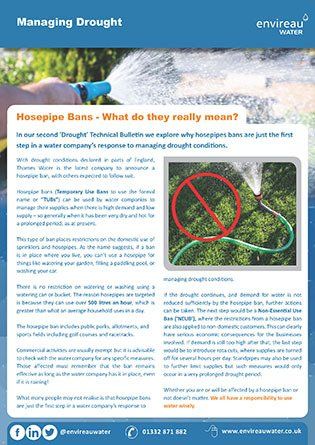Hosepipe Bans and What Do They Really Mean?
With drought conditions declared in parts of England, Thames Water is the latest water company to announce a hosepipe ban, with others expected to follow suit.
Hosepipe bans (Temporary Use Bans to use the formal name or “TUBs”) can be used by water companies to manage their supplies when there is high demand and low supply – so generally when it has been very dry and hot for a prolonged period, as at present.
This type of ban places restrictions on the domestic use of sprinklers and hosepipes. As the name suggests, if a ban is in place where you live, you can’t use a hosepipe for things like watering your garden, filling a paddling pool, or washing your car.
There is no restriction on watering or washing, using a watering can or bucket. The reason hosepipes are targeted is because they can use over 500 litres an hour, which is greater than what an average household uses in a day.
The hosepipe ban includes public parks, allotments, and sports fields including golf courses and racetracks. Commercial activities are usually exempt but it is advisable to check with the water company for any specific measures. Those affected must remember that the ban remains effective as long as the water company has it in place, even if it is raining!

What many people may not realise is that hosepipe bans are just the first step in a water company’s response to managing drought conditions.
If the drought continues, and demand for water is not reduced sufficiently by the hosepipe ban, further actions can be taken. The next step would be a Non-Essential Use Ban (‘NEUB’), where the restrictions from a hosepipe ban are also applied to non-domestic customers. This can clearly have serious economic consequences for the businesses involved. If demand is still too high after that, the last step would be to introduce rota cuts, where supplies are turned off for several hours per day. Standpipes may also be used to further limit supplies but such measures would only occur in a very prolonged drought period.
Whether you are or will be affected by a hosepipe ban or not doesn’t matter. We all have a responsibility to use water wisely.
Envireau Water is an RSK Group Company.








